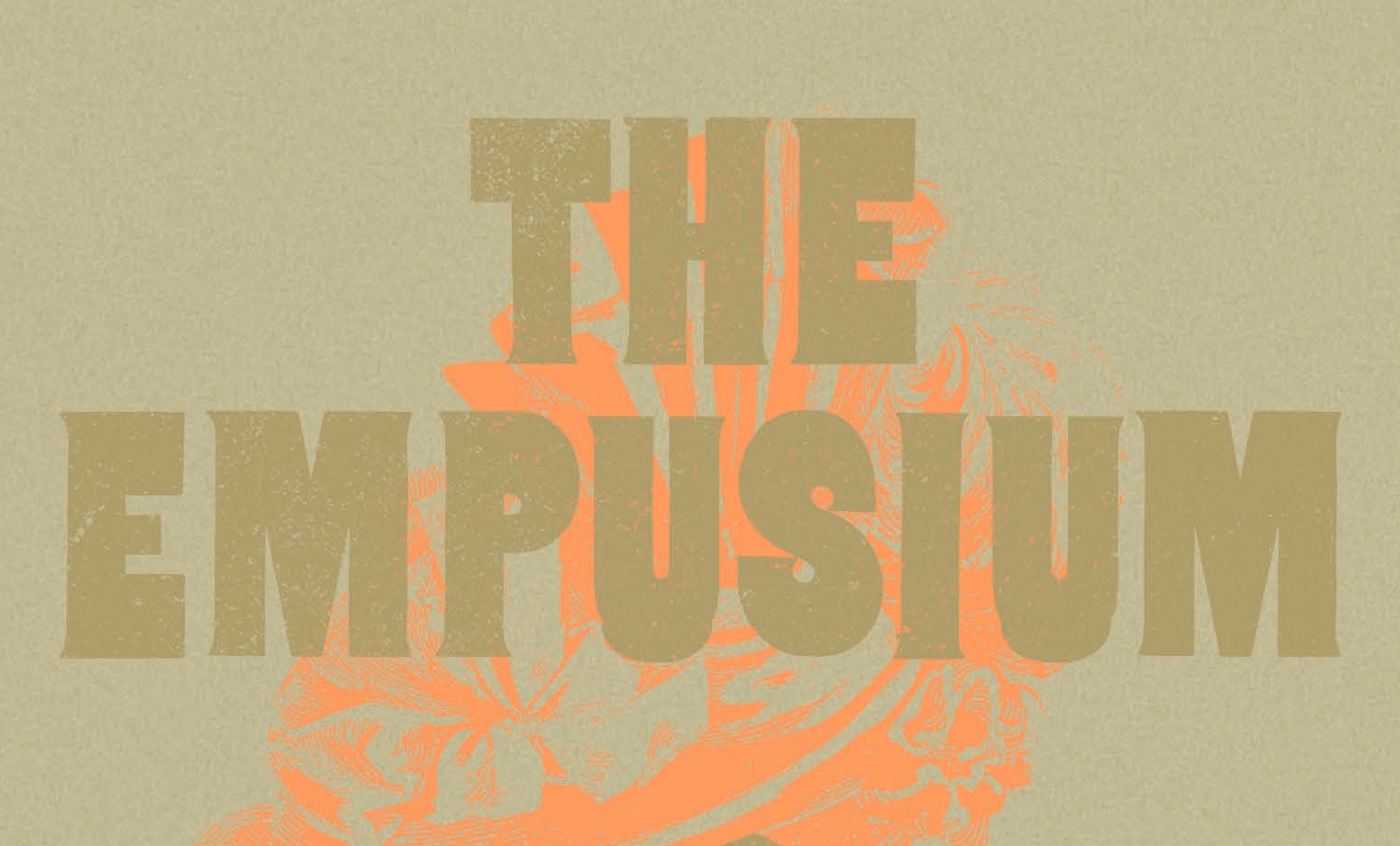Interviews
The Stranger’s Tongue
Rowan Hisayo Buchanan on translation, empathy and what our favorite foreign words and works reveal

Last year people, books, and Instagram pages clamored to suggest I’d enjoy the Danish art of hygge. Hygge the books said is a celebration of the simple, homely, and cozy. It is warm socks, gingerbread, a family meal, coffee-foam, or a well-loved cardigan. In these cold months, the idea is appealing. A word plucked from a foreign language can be seductive. It implies that with this one word we can swallow the wisdom of a people different from ourselves, and be given a new way to talk about our lives. During my childhood every bookshop was crammed with Zen. The Zen of Gardening. The Zen of Marriage. The Zen of Eating.
It’s an odd exercise, this selection of a single word. Words in dictionaries are like animals in dioramas. Interesting, educational, but dead. Words find their natural habitats in paragraphs, sentences, and stanzas. I haven’t seen a corresponding spike of interest in Danish writing and writers. Perhaps this is because Soren Kierkegaard’s Sickness Unto Death is a less attractive coffee table book. But surely, it is fascinating that a language and culture has room for both hygge and Frygt og Bæven (Fear and Trembling)?
The work of translators has shaped my life and writing. As a teenager, I lurked in Daunt Books in Marylebone, London. Daunt looks like a bookshop in a picture book, wooden floors, green glass lights, a huge stained glass window. I didn’t fit in. At that age, I had pink hair, giant black biker boots, and an iPod in my ears at all times. The iPod was rather scratched, and I played the same few songs on loop. But I adored Daunt because they organized books by country. Before a reader jets off they can pick up a travel guide and local classic from the same shelf. This system made it easy for me to find Japanese and Chinese novels without knowing the names of specific novelists.
Asia is in the basement. Japan and China stand side by side. I didn’t recognize most of the names and would choose books by their covers, their size, or just an opening sentence. Although my English vocabulary was extensive, my foreign language skills were weak. I knew I’d never read any of these works in the original. Having my grandfather’s eyebrows or my grandmother’s chin didn’t give me their words, grammar, or even the right accent. My chest ached with this failure. I could say I was part Japanese and part Chinese and it would be true. Some rituals, habits, and aesthetic preferences had made it across oceans into our London house. But I didn’t even know what they were. What was Japanese? What was just my Mom being weird?
At home, my mother had a collection of novels from both countries. These books smelled faintly of glue, and the pages had tanned a deep gold with time. Newer editions of these same novels could be found at Daunt. But I was most interested in the now. I was looking for an alternate universe version of myself, one whose accent was perfect, who lived in Tokyo or Shanghai. There were few contemporary translations. Once in a while, not as often as I would like, a new book appeared. No one recommended me these books. I didn’t hear about them from friends or the radio. The only way I knew they existed was that they arrived on the shelf. I still remember the satisfying square of Hitomi Kanehara’s Autofiction. It is a physically small book and barely added to the weight of my satchel. I read it in a hungry gasp on the Tube and then back in my bedroom. It begins with a woman having a panic attack on an airplane. The story that unfolds is strange, sad, and quite surreal. The book doesn’t claim to teach the reader anything about Japan or Japanese Culture. But it helped me feel connected to a part of myself that I didn’t know. In the back of Autofiction, I learned she’d written a book called Snakes and Earrings. And so I searched it out.
I was looking for an alternate universe version of myself, one whose accent was perfect, who lived in Tokyo or Shanghai.
Years later, I’d live briefly in Tokyo. I’d study Japanese language and literature in university classes. I’d borrow my mother’s copy of Kokoro by Natsume Soseki, whose impact on Japanese literature can be imagined if you picture Virginia Woolf and Dickens melding into the same person. Some might say I should’ve started with classics and language classes — that these things would have given me the grounding to understand Autofiction. I disagree. Autofiction gave me a connection that leant me the courage to learn. When I wrote my own novel, Harmless Like You, I was asked who were my influences. I gave the names of English language novelists, but also Kanehara and Soseki. If they hadn’t been translated I’d be a different writer.
Much is lost in translation, and this is especially true for languages as different as Japanese and English. I wasn’t understanding the totality of Kanehara’s work. But I doubt I will ever wring out all that is in Mrs. Dalloway or Pale Fire. For me, fiction is about attempting the empathetic leap, not about perfect success. The original title of Autofiction was オートフィクション (O — tofuikushion). In other words, the Japanese phonetical spelling of the English — Autofiction. Kanehara is also leaping and translating.
Sociologists David Comer Kidd and Emanuele Castano at the New School found that reading literary fiction enhances our capacity for empathy. I’ve made no study, but suspect that reading literature from other cultures expands our empathy for those from different shores.
The Translator’s House in Amsterdam invited me to visit to promote the understanding between translators and writers. Jeske van der Velden has been translating a short story of mine into Dutch. Jeske read my story more carefully than I thought possible. When a character of mine strained under the weight of her husband, Jeske wanted to know which was more important — the emotional or the physical strain? Did I imagine the blood on the girl’s hands as sticky or wet? What was more important to me, the sound of a word or its meaning?
To allow us both a breath, we decided to get dinner in what she termed Amsterdam’s hipster district. Designer lightbulbs cast their multicolored glow over the pale pine table and the fistful of flowers resting in a jam jar. Hesitantly, I outlined my empathy idea to her. I wanted to know what she thought. She considered and then began —
Milan Kundera called the novel the paradise of individuals, because it gives you a lot of space and possibility to express someone’s point of view from the inside. So I think, in that sense, all fiction gives people the possibility to look at the world from the perspective of another person’s life. Kundera calls this an ‘experimental self.’ Literature from other countries would possibly open up that space even further, and you’re not looking at the culture from the outside but from someone’s point of view who lives there or has grown up there.
As a translator she said she’d become very aware of the relation between culture and language —
Some expressions or experiences become embedded in language that is almost unique to that culture. Therefore the two are very closely related. So what you’re trying to do as a translator is to make the author you’re translating understood in your own language, while at the same time stretch your culture and language a bit to accommodate what makes their voice and experience different. Which in the end might change your own culture a little bit.
When I asked her for an example she reminded me of a column I wrote about wishbones. Jeske had explained to me that the Dutch do not have the idea of a wishbone. For them it is a simple bone and devoid of magic —
But if the idea is translated often enough, if enough people read it and learn about it, it becomes part of their mental system or language.
It was a lovely idea and in the warmth of the Noorderlicht Restaurant, I felt a corresponding heart-warming. The waitress came over to interrupt our little interview with laminated menus. One in English. One in Dutch. Jeske and I compared menus. The English was missing an entry. What is it I asked? Jeske wrinkled her eyebrows. A type of fish? In the tiniest of gestures, this is what I ordered.
It was quite delicious. As I tasted the sweet sharp fish, I said how happy it made me, the idea of cultures shuffling over and making room for these new ideas. Jeske tilted her head slightly, took a breath and said, But it is not so simple.
Is it ever?
Academic and translator, Gideon Toury argued that the way something is translated not only depends on the tastes and beliefs of the translator but on the relative powers of the cultures involved. The more economic and cultural power is associated with a language, the less weirdness readers would accept. Jeske explained that Dutch, with its relatively small number of first language speakers, accepts a lot of strangeness. Whereas work translated into English is more often smoothed out. Translators call this domestication. This saddened me. How can a culture stretch to accommodate a new idea if that idea is bleached away?
How can a culture stretch to accommodate a new idea if that idea is bleached away?
Hygge it seems has entered English culture. The idea of hygge and homeliness is beautiful. But what does it mean that our favoured foreign word is about not leaving the comfort of home? In this time of increasing xenophobia, I hope we can stretch to accommodate not just words, but books, ideas, philosophies. We need all the new ideas we can grasp.








